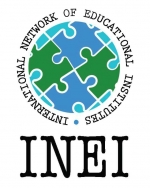Multicultural Education
Multiculturalism has receded into the background of societies’ priorities. A new study from IALEI’s joint team of researchers concludes that education systems around the world need to put multicultural diversity at the forefront of their concerns. There is a serious risk to social cohesion if countries neglect the need for educational equality for all.
In this issue of Education Alliance Magazine you can read about the study, the World Bank education strategy, the rise of multicultural education in Korea, and more.
Education Alliance Magazine, Vol. 5, January 2011
(unavailable for download)
From melting pot to salad bowl
The melting pot policy neglects the fact that each cultural group has the right to be recognised as a group in itself with its own identity and that each cultural group has the right to demand acknowledgement of this identity.
What is multiculturalism?
What comes into your mind when you hear the words`multiculturalism´and `multicultural education´? The discussion of what multicultural education is has yet to be concluded. In some countries, for instance in Korea, the discussion is relatively new. Other countries, such as the USA, have a long history of multiculturalism, and here it is linked to the term `the melting pot´.
Vox pop: Why is multicultural education important?
How is diversity a benefit to educators?
The death of multiculturalism is an exaggeration
In a new study by IALEI, a group of leading international researchers conclude that education systems around the world must put multicultural diversity at the forefront of their concerns.
Multicultural literacy is a challenge for all global citizens
Multicultural education has traditionally been about respect for communities and for differences in language and culture to guide education. This agenda is still important and a huge challenge for countries, rich and poor, but as young people seek to educate themselves as global citizens, multicultural education takes on a new dimension.
Multicultural literacy is a challenge for all global citizens
Multicultural education has traditionally been about respect for communities and for differences in language and culture to guide education. This agenda is still important and a huge challenge for countries, rich and poor, but as young people seek to educate themselves as global citizens, multicultural education takes on a new dimension.
Educating`the good citizen´
After having been a mantra for decades in countries such as Australia, Canada and Britain, multicultural education has been put in the dog-house. Education policies now focus on creating democratic and western-minded citizens who `won’t get into trouble´. Leading education researchers warn against decrying multicultural education and leaving ethnic minorities behind at a time when diversity is growing immensely.
The rise of multiculturalism in Korea
The half-Korean football star Hines Ward plays a huge role in the renewed view on immigrants in Korea. Professor Hiwon Yoon explains how and why multiculturalism is rising in one of the top ten economies in the world.
Researchers’ guide to the best books on multicultural education
What is your favourite book about multicultural education?
Is Denmark still a fairytale country?
In Denmark, you earn much more as a salesperson if you are named Kasper or Katrine than Amir or Fatima. Why? Because in Denmark, people favour the majority culture over the minority culture, a new Danish study concludes.
`Our survival depends on our ability to live together´
Singapore is a living, breathing example of a multicultural society. Associate Professor Rahil Ismail explains why and how Singaporeans manage to live with differences.
Best cases
What is a good example of multicultural education in your country? Education Alliance Magazine has asked some researchers from the joint project `Multicultural Education´ to describe an example of best practice in their country.
